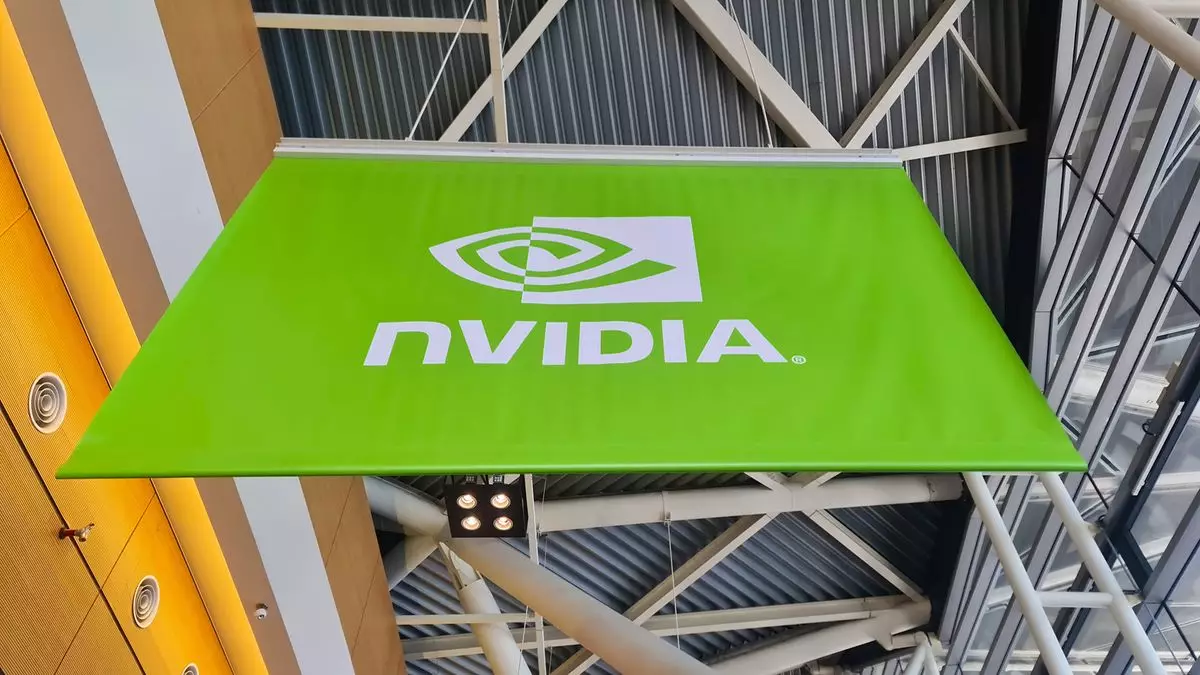The tech industry is encountering an unprecedented wave of legal challenges, especially following the rapid advancement of artificial intelligence (AI). Nvidia, a major player in the AI data center market, is not immune to these pressures. With claims being levied against it akin to the broader pattern witnessed among colossal corporations, Nvidia has entered the spotlight due to a significant class-action lawsuit concerning its communications to investors regarding its ties to the cryptocurrency market.
In recent years, legal battles involving tech giants have become commonplace, often highlighting issues of transparency and accountability. The growth of the AI sector has only intensified scrutiny, drawing attention from regulators and investors alike. Nvidia’s legal troubles are emblematic of this trend, particularly as the company has reaped substantial profits from its technology’s applications in cryptocurrency mining and training AI algorithms.
Nvidia’s current predicament stems from a class-action lawsuit filed back in 2018. The plaintiffs allege that Nvidia misled investors by downplaying the extent of its reliance on cryptocurrency for revenue. Specifically, the lawsuit accuses Nvidia of violating the 1934 Securities Exchange Act, a piece of legislation designed to protect investors by ensuring accurate financial disclosures from publicly traded companies.
The U.S. Supreme Court recently sidestepped a decision regarding Nvidia’s appeal, effectively allowing the lawsuit to proceed by dismissing the company’s request to prevent it from moving forward. The implications of this ruling are significant, as it means that the courts will now address whether the allegations against Nvidia hold sufficient weight to warrant trial.
Nvidia’s defense rested on the assertion that the plaintiffs failed to establish a solid foundation for their claims in the first place, citing the 1995 Private Securities Litigation Reform Act. This legislation was implemented to reduce frivolous lawsuits and ensure that claims made by investors require a demonstrable basis before progressing to court. Nvidia sought to convince the Supreme Court that the evidence presented by the plaintiffs was insufficient, however, this argument was met with skepticism.
Adding further nuance to the case, Justice Ketanji Brown Jackson expressed concern during the discussions surrounding Nvidia’s appeal. She noted that imposing a requirement for plaintiffs to present evidence before the case is heard could undermine the principle of justice. This sentiment underscores a vital aspect of the legal process—determining the strength of evidence is ideally reserved for the court proceedings themselves rather than being a prerequisite for initiating a lawsuit.
The Supreme Court’s dismissal of Nvidia’s appeal does not guarantee any financial repercussions for the company; rather, it opens the door for the courts to evaluate the claims made by investors. Nvidia has already faced scrutiny in the past, having previously paid $5.5 million to the Securities and Exchange Commission (SEC) for related issues concerning its revenue disclosures tied to cryptocurrency dependence. The possible ramifications of this lawsuit could lead to further accountability for Nvidia and similar tech firms, who may feel emboldened to reevaluate their investor communications.
As legal precedents are set in cases like this, the outcome is likely to influence how tech companies disclose their financial relationships with volatile sectors like cryptocurrency. Investors are keenly observing the situation, as the resolved case could set a crucial standard for transparency.
The legal battles facing Nvidia and its peers raise important questions about corporate ethics in the technology industry. Amid increasing profitability and market dominance, the expectation of maintaining robust, transparent communication with stakeholders remains imperative. As seen in the evolving relationship between tech companies and regulatory bodies, the demand for accountability is only projected to intensify.
As the case unfolds, Nvidia’s fate in the courtroom will not only reflect its balance sheet but also its commitment to investor respect and integrity. With an increasingly vigilant public and investor community, tech giants may find that a parallel emphasis on ethical practices is just as crucial as striving for innovation and financial success. The ramifications of this case may extend far beyond Nvidia, influencing the landscape of corporate governance in the tech industry for years to come.

